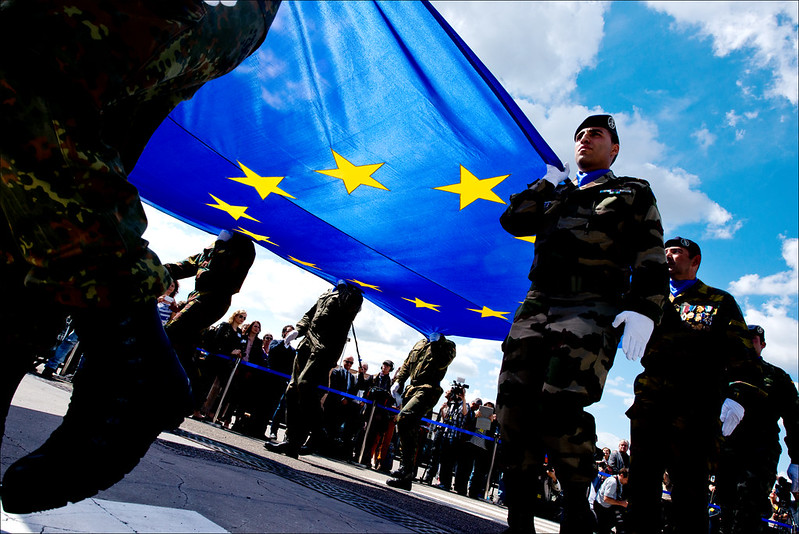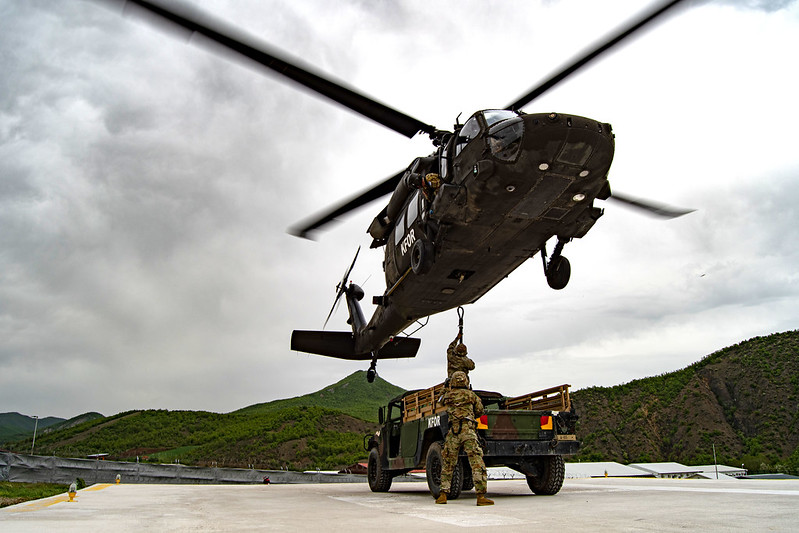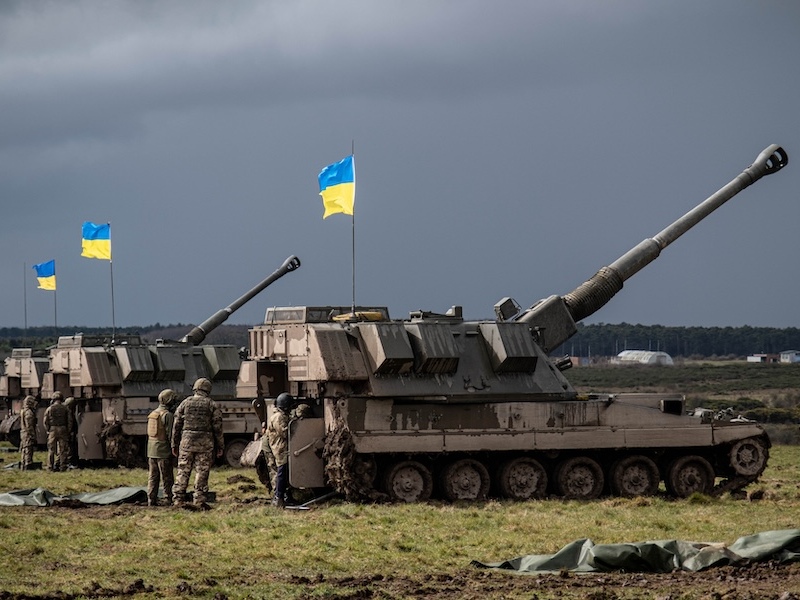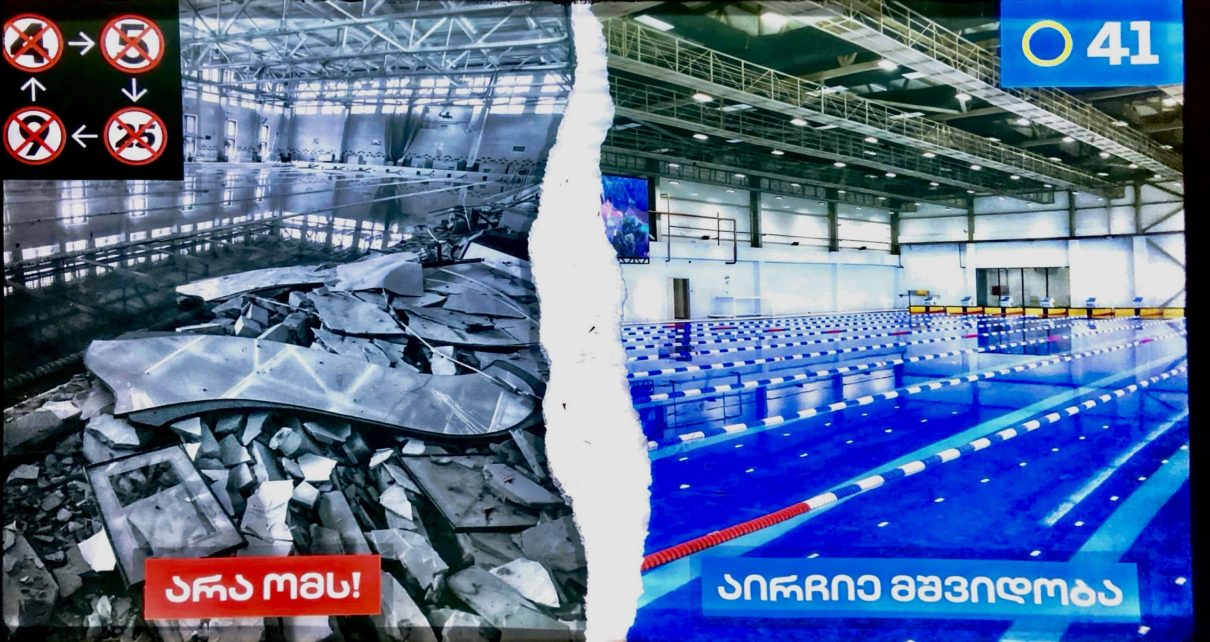On March 18, 2025, Poland and the three Baltic countries announced that they would be considering withdrawing from the Ottawa Convention, otherwise known as the Mine Ban Treaty. This was followed by Finland, which shared similar remarks on April 1. This recent trend among NATO states bordering Russia and their ally, Belarus, shows the heightened Read More…
Society, Culture, and Security
The NATO Association of Canada’s Society, Culture, and Security program takes a look at the issues that impact Canadians’ every day lives while connecting them to international relations. The program covers a wide range of topics, which include: pop culture, art, film, global events, and socio-political relations. In addition, Society, Culture, and IR aims to examine and provide in-depth analyses that relate international affairs to the interests of Canadian society.
Has the Time Finally Come for a European Army?
The idea of a collective European defence force is as old as the European integration project itself. However, it has always been outshone by NATO and deemed too logistically and politically arduous for a supranational body that was excelling in projecting soft power. Fast-forward to 2025, three years into Russia’s full-scale invasion of Ukraine and only a few months into Trump’s second term, which has included a great deal of NATO- and Europe-criticism, suggesting that the United States might no longer help defend Europe. The idea of deepened European defence integration, perhaps even a sovereign European army, is no longer so far-fetched. Can the EU make use of its single market to harness its defence capabilities and work around the political divisions on foreign and security policy within the Union?
Future-Proofing NATO: The Greenland Test
International society, once marked by predictable institutions and norms, is now increasingly marred by violations of international law and uncertainty. Near-daily disruptions, including territorial aggression and economic coercion, are undermining the global equilibrium upon which decades of peace and prosperity depended. The present utility of NATO lies in its ability to salvage the transatlantic bond, ensure cohesion among its members, and Read More…
NATO in Kosovo: Redefining “Success” 26 Years Later
Twenty-six years following NATO’s intervention in Kosovo, tensions between ethnic groups continue to plague political discourse and trigger violent flare-ups. Kosovo’s stability depends on the presence of KFOR troops and Serbia has turned increasingly closer to Russia. Such issues beg the question: how do we define the success of NATO’s mission in Kosovo?
Conscription in NATO Countries: Why Do Some Have It and Others Don’t?
In his latest article, James Lautens explores the discussion around military conscription as a means of deterrence in global security. By comparing conscription policies in NATO countries, he outlines the cultural, political, geographic, and historical factors behind conscription policies and argues that, in an increasingly unstable world, Canada should consider all options – including conscription – to strengthen its defences.
NATO and Conventional Arms Control: Military Transfers to Ukraine
In December 2024, NATO’s Security Assistance and Training for Ukraine (NSATU) took over the coordination of the provision, transfer, and repair of military equipment critical to Ukraine’s battlefield needs. While it is crucial to strengthen Ukraine’s ability to protect itself against Russian invaders, equally important is ensuring proper control over the delivered weaponry. The diversion Read More…
A Third Nuclear Age: Russia’s Role in Nuclear Proliferation Since the Invasion of Ukraine
At a Royal United Services Institute event in December 2024, the head of the UK military, Admiral Sir Tony Radakin, claimed that the world could be on the brink of a “third nuclear age”. Nuclear weapon proliferation is on the rise, largely driven by the Russian invasion of Ukraine. It is important to identify the Read More…
NATO and Conventional Arms Control in the Context of the Russian War on Ukraine
One overlooked aspect of NATO’s activities is the alliance members’ commitment to conventional arms control. The NATO 2022 Strategic Concept, adopted at the Madrid Summit, highlights the importance of arms control and disarmament for global security Conventional arms control measures include efforts such as the reduction of troops or even the total abolition of armed Read More…
NATO and Libya: A Case-Study in Failing at the Responsibility to Protect?
In 2011, when the “Arab Spring” protests advocating for the removal of long-time authoritarian regimes in North Africa hit Libya, a combination of corporate interests, realpolitik power calculations, and global humanitarian concerns led the West to intervene. For most of the decade that followed, Libya became a quintessential failed state. Resultantly, many in the West Read More…
“The Global War Party”: Anti-Western Rhetoric in the 2024 Georgian Parliamentary Elections
This article was originally published as an intern contribution at the Georgian Foundation for Strategic and International Studies. Fear of war has long shaped Georgian domestic politics. Conflict between Tbilisi and Russian-backed separatists in the regions of Abkhazia and Tskhinvali (South Ossetia) left the country fragmented following the collapse of the Soviet Union. 2008 saw Read More…










